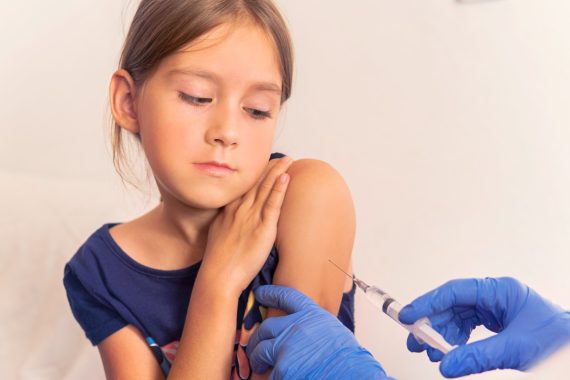There have been no cases of cervical cancer in women in Scotland who have been fully vaccinated against HPV, a new analysis has found.
A study by Public Health Scotland looking at screening, cancer registry and immunisation data since the vaccine was routinely introduced in 2008 found to date there has been no invasive cervical cancers in those who had been vaccinated at 12 or 13 years irrespective of how many doses they had.
In those who had been vaccinated at age 14 to 22 years and given three doses there had been a significant reduction in the incidence of cervical cancer compared with those who had not had the jab, they reported in the Journal of the National Cancer Institute.
It comes as NHS England urged thousands more young people to take up the offer of the HPV vaccine in order to meet the goal of cervical cancer elimination by 2040.
The latest figures for England show around one in six girls and one in five boys are not fully vaccinated by year 10.
Data from the UK Health Security Agency (UKHSA) for the school year 2022/23, shows a slight uptick in uptake for girls and boys in year 8 from the previous year but a decline for those in years 9 and 10.
For children in year 8, uptake increased by 1.7% to 71.3% but that is still lower than coverage seen before the pandemic, UKHSA said.
In year 9 girls, uptake has fallen from 82.2% to 75.7% in the past year, with a fall from 77.6% to 69.7% in boys of the same age, the figures showed.
All 12-and-13-year-olds are now offered a single dose instead of the two, making it easier to get protected against HPV, health officials said.
Dr Kirsty Roy, consultant in health protection at Public Health Scotland and study co-author said their research had involved every woman in Scotland who was eligible for vaccination.
‘It shows how effective the HPV vaccine is as there have been no cervical cancer cases to date in fully vaccinated women who were given their first dose at age 12-13 years.
Alongside regular screening for early detection and treatment, ‘it is possible to make cervical cancer a rare disease’, she said.
Dr Vanessa Saliba, UKHSA consultant epidemiologist, said: ‘The HPV vaccination programme is one of the most successful in the world with millions of doses given since it started in 2008.
‘It has dramatically lowered the rates of cervical cancer and harmful infections in both women and men – preventing many cancers and saving lives.
‘We urge everyone who is eligible to take up this potentially lifesaving vaccine when offered.’
She urged anyone under the age of 25 years who had missed the vaccine to contact their school nurse, school immunisation team or GP practice to arrange an appointment.

















